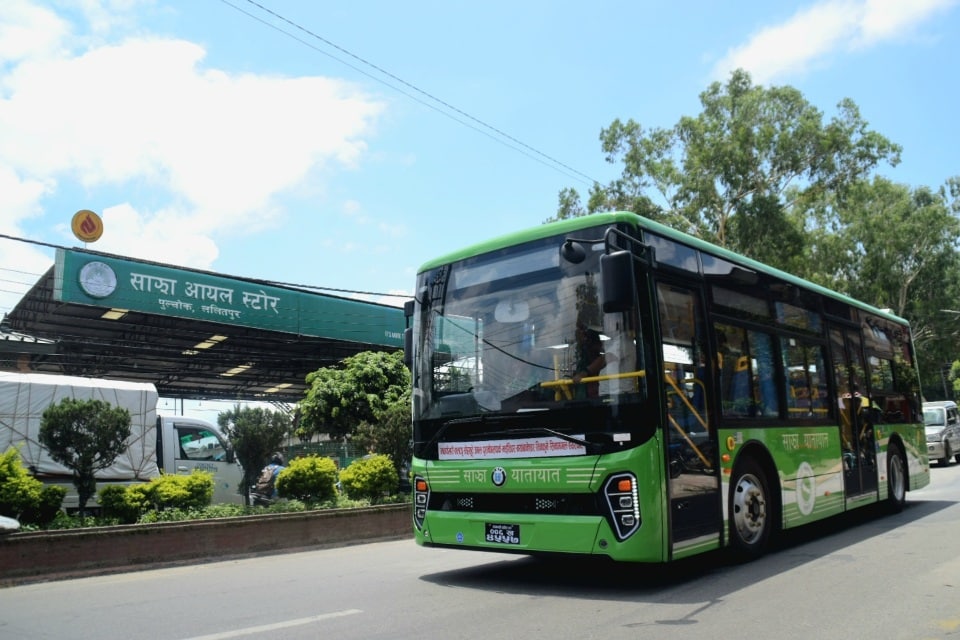
Sajha Yatayat, a public transportation company in Nepal, has started an electric bus service from Patandhoka to Gyaneshrar-Jorpati (Dakshindhoka) via Ratnapark. The electric bus service was inaugurated by Mayor Chiribabu Maharjan of Lalitpur Metropolitan Municipality. Initially, the service consisted of three buses running from Dakshindhoka-Jorpati-Chabhil-Gaushala-Ratopul-Ghantaghar-Jamal-Maitighar-Patandhoka route. However, there are plans to expand the service and run up to 15 electric buses on this route.
In June of the previous year, Sajha Yatayat had conducted a test service with three electric buses. Subsequently, the company purchased 40 battery-operated buses from China’s CHTC company at a cost of Rs. 61,83,45,732. The decision to support electric public transport by providing Rs. 3 billion to transport cooperatives was made by the KP Oli-led government on June 30, 2076.
The purchase of buses faced delays as the government initially halted the process but later allowed it to proceed. The arrival of the buses was made possible after common transport was permitted to introduce electric buses. However, the lack of a depot for overnight charging had been a hindrance. Potential locations for charging depots were identified, including Sallaghari, Khumaltar, Gurjudhara, Trolleybus Depot, and Sajha premises in Pulchok. However, no concrete steps were taken in utilizing these places.
The 37 buses acquired by Sajha Yatayat are of the same model as the initial three buses. After a thorough evaluation by a team of expert professors from Tribhuvan University and Kathmandu University, it was determined that the buses were suitable.
Sajha Yatayat aims to promote electric transportation in collaboration with other municipalities in the valley, particularly on the Patandhoka-Jorpati new route. The company expects the municipalities to assist in establishing charging depots in their respective areas. The Nepal Electricity Authority has expressed readiness to provide electricity connections and transformers for common transport.
Electric transportation is seen as crucial for public health, reducing reliance on fossil fuels, and improving the accessibility and dignity of public transportation. Sajha Yatayat expressed gratitude to the government for its support in purchasing battery-powered buses. The company has formed a study team to explore the purchase of an additional 60-80 buses through an international competition and hopes to secure a depot for charging with the federal government.
The adoption of electric public transport is considered a pressing need in the Kathmandu Valley and other urban areas of Nepal. Since most public transport in the country is operated by private bus operators, the private sector requires concessional loans and other facilities to advance in electric transportation. The initial investment for an electric bus is three times higher than that of a diesel bus, hence the need for concessions and support.
Related:



